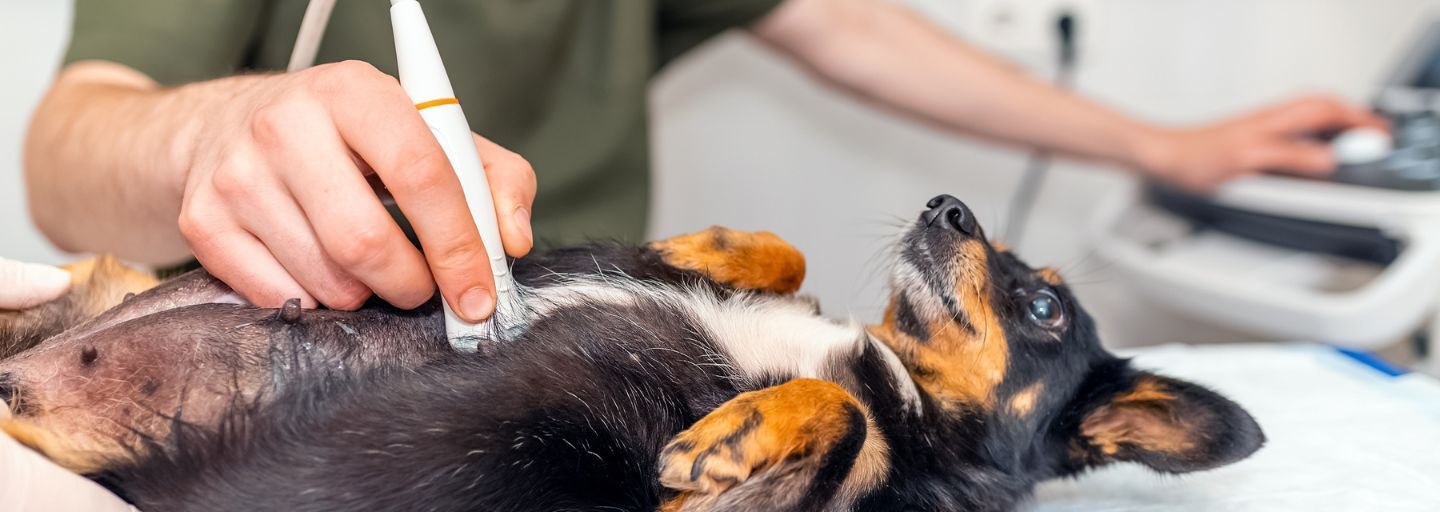For dog owners, the anticipation of a new litter of puppies can be an exciting and joyous time. But have you ever wondered how long dogs are pregnant? Understanding the duration of canine pregnancy is essential for proper care and preparation.
How Long Are Dogs Pregnant for?
On average, dogs are pregnant for an average of 63 days, although this can vary slightly depending on the breed and individual factors. It is important to note that the length of pregnancy can range from 58 to 68 days, and still be considered within the normal range. It is crucial to consult with your veterinarian to determine the specific timeline for your dog's pregnancy, as they can provide guidance based on your dog's breed and health.
What Are the Symptoms of Dog Pregnancy?
Detecting the early signs of pregnancy in dogs can be challenging, as the symptoms may vary and can be subtle. However, there are some common signs that may indicate your dog is pregnant. Here are some symptoms to look out for:
- Changes in Appetite: One of the earliest signs of pregnancy in dogs is a change in appetite. Some dogs may experience a decrease in appetite during the first few weeks, while others may have an increased appetite. Keep an eye out for any noticeable changes in your dog's eating habits.
- Nipple Enlargement and Colour Change: As pregnancy progresses, you may notice that your dog's nipples become larger and more prominent. Additionally, the colour of the nipples may darken. This change is due to hormonal shifts in preparation for nursing the puppies.
- Behavioural Changes: Pregnant dogs may exhibit behavioural changes. Some dogs become more affectionate and seek extra attention from their owners. Others may become more withdrawn or display nesting behaviours, such as seeking out a quiet and comfortable space to rest.
- Increased Sleep and Fatigue: Pregnant dogs may show signs of increased sleep and fatigue. They may spend more time resting or sleeping than usual. This is a natural response to the physical changes occurring in their bodies.
- Abdominal Enlargement: As the pregnancy progresses, you may notice that your dog's abdomen becomes larger and rounder. This is due to the growing size of the puppies and the expanding uterus. However, it's important to note that abdominal enlargement can also be a sign of other health conditions, so it's best to consult with your veterinarian for an accurate diagnosis.
- Vomiting and Morning Sickness: Some pregnant dogs may experience morning sickness, which can manifest as occasional vomiting or nausea. If your dog is experiencing frequent or severe vomiting, it's important to consult with your veterinarian to rule out any underlying health issues.
- Increased Urination: Pregnant dogs may urinate more frequently than usual. This is due to hormonal changes and the pressure of the growing uterus on the bladder. If you notice your dog needing to go outside more often or having accidents in the house, it could be a sign of pregnancy.
It's important to note that these symptoms are not exclusive to pregnancy and can also be indicative of other health conditions. If you suspect that your dog may be pregnant, it's crucial to consult with your veterinarian for a proper diagnosis. They can perform a physical examination, ultrasound, or other diagnostic tests to confirm pregnancy.
What to Do If Your Dog Is Pregnant
If you discover that your dog is pregnant, it's important to take appropriate steps to ensure her health and the well-being of the developing puppies. Here are some essential guidelines to follow if your dog is pregnant:
- Consult with Your Veterinarian: Schedule an appointment with your veterinarian as soon as you suspect or confirm your dog's pregnancy. They will be able to confirm the pregnancy, estimate the due date, and provide guidance on prenatal care specific to your dog's breed and health.
- Adjust Her Diet: Proper nutrition is crucial during pregnancy. Your veterinarian can recommend a suitable diet that meets the nutritional needs of your pregnant dog. High-quality, balanced dog food formulated for pregnant or nursing dogs is typically recommended. Avoid giving excessive amounts of food, as overfeeding can lead to complications. Provide fresh water at all times and consider adding supplements if advised by your veterinarian.
- Provide a Comfortable Environment: Create a safe and comfortable space for your pregnant dog to rest and prepare for the arrival of her puppies. Provide a quiet area away from noise and disturbances. Set up a whelping box with clean bedding, ensuring it is large enough for the mother and her puppies. Make sure the area is warm, as puppies cannot regulate their body temperature initially.
- Monitor Her Health: Keep a close eye on your dog's health throughout her pregnancy. Watch for any signs of discomfort, distress, or unusual behaviour. Report any concerns to your veterinarian promptly. Regular veterinary check-ups are essential to monitor the progress of the pregnancy and address any potential complications.
- Prepare for the Birth: As the due date approaches, gather necessary supplies for the birthing process. This may include clean towels, heating pads, gloves, and a thermometer. Familiarize yourself with the signs of labour, such as restlessness, nesting behaviour, and a drop in body temperature. Be prepared to provide support and assistance if needed, but also allow the mother to instinctively care for her puppies.
- Postnatal Care: After the birth, continue to provide a calm and stress-free environment for the mother and her puppies. Monitor the puppies' weight gain and ensure they are nursing properly. If you notice any signs of distress or if a puppy is not gaining weight, consult your veterinarian immediately. Follow your veterinarian's guidance on vaccinations, deworming, and weaning the puppies.
Remember, each dog's pregnancy journey is unique, and it's essential to consult with your veterinarian for personalized advice and guidance. By providing proper care, nutrition, and a supportive environment, you can help ensure a healthy and successful pregnancy for your dog.







